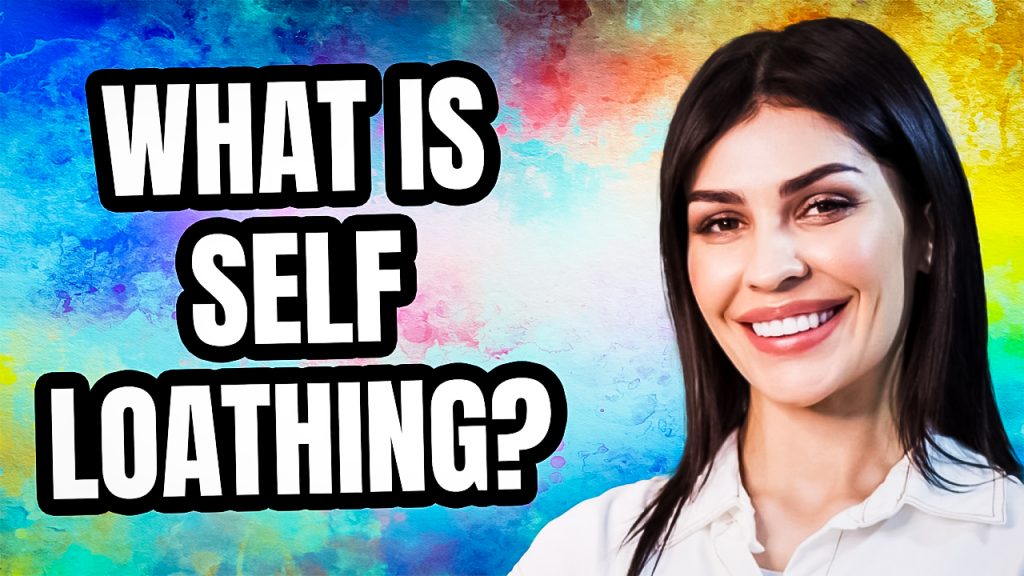What is Self Loathing?

Self-loathing is a term used to describe intense self-hatred or a deep dislike of oneself. It is a
complex and distressing psychological state characterized by feelings of worthlessness, shame,
and self-criticism. Self-loathing can manifest in a range of ways, including negative self-talk,
self-harm, self-neglect, and avoidance of social situations. It is a serious mental health issue
that can significantly impact a person’s quality of life and relationships.
Self-loathing can stem from a variety of causes. Childhood experiences such as abuse, neglect,
or trauma can lead to a distorted sense of self and negative beliefs about one’s worth. Social
factors such as bullying, discrimination, or cultural stereotypes can also contribute to
self-loathing. In addition, certain mental health conditions such as depression, anxiety, and
borderline personality disorder can cause or exacerbate self-loathing.
One of the most common signs of self-loathing is negative self-talk. This can take the form of a
constant inner dialogue of self-criticism, harsh self-judgment, and negative beliefs about
oneself. For instance, a person struggling with self-loathing may constantly tell themselves they
are stupid, worthless, or unlovable. They may also ruminate on past mistakes, failures, or
embarrassing moments, further reinforcing their negative self-image.
Another common manifestation of self-loathing is self-harm. This can include cutting, burning, or
otherwise injuring oneself as a way to cope with emotional pain or self-hatred. Self-harm is a
serious issue that requires professional help and support to overcome.
Self-loathing can also lead to self-neglect, where a person neglects their physical, emotional, or
mental health needs. This can take many forms, including poor hygiene, lack of self-care, and a
general disregard for one’s well-being. In severe cases, self-neglect can lead to physical illness,
malnutrition, and other health issues.
Finally, self-loathing can also cause a person to avoid social situations, relationships, or new
experiences. This can be due to a fear of rejection, humiliation, or failure. In extreme cases, it
can lead to social isolation and loneliness, further exacerbating the person’s self-loathing.
There are many negative consequences of self-loathing. It can lead to a range of mental health
issues such as depression, anxiety, and substance abuse. It can also impact one’s
relationships, as self-loathing can make it difficult to connect with others and form meaningful
connections. In addition, self-loathing can affect one’s physical health, as neglecting one’s
physical needs can lead to a range of health problems.
Overcoming self-loathing is a complex process that often requires professional help and
support. Therapy can be an effective way to address the underlying causes of self-loathing and
develop strategies to manage negative thoughts and emotions. Cognitive-behavioral therapy, in
particular, has been shown to be effective in treating self-loathing and related mental health issues. In addition, self-help resources such as books, online resources, and support groups
can also be helpful.
Practicing self-compassion is another important step in overcoming self-loathing. This involves
treating oneself with kindness, understanding, and acceptance. It means acknowledging one’s
imperfections and mistakes without judgment and learning to forgive oneself. Self-compassion
can help reduce self-criticism and promote a more positive self-image.
Engaging in self-care activities can also help combat self-loathing. This can include exercise,
healthy eating, getting enough sleep, and engaging in hobbies or activities that bring joy and
fulfillment. By taking care of oneself physically and emotionally, one can improve their
self-esteem and reduce feelings of self-loathing.
In conclusion, self-loathing is a serious mental health issue that can have negative impacts on a
person’s well-being and relationships. It can stem from a variety of causes, including childhood
experiences, social factors, and mental health conditions. Signs of self-loathing include negative
self-talk, self-harm, self-neglect, and avoidance of social situations. Overcoming self-loathing
requires professional help, self-compassion, and self-care. It is important to seek support and
treatment to improve one’s mental and emotional health and lead a fulfilling life. With the right
tools and resources, it is possible to overcome self-loathing and develop a positive sense of
self-worth and self-acceptance.
This Post is Brought To You By BetterHelp